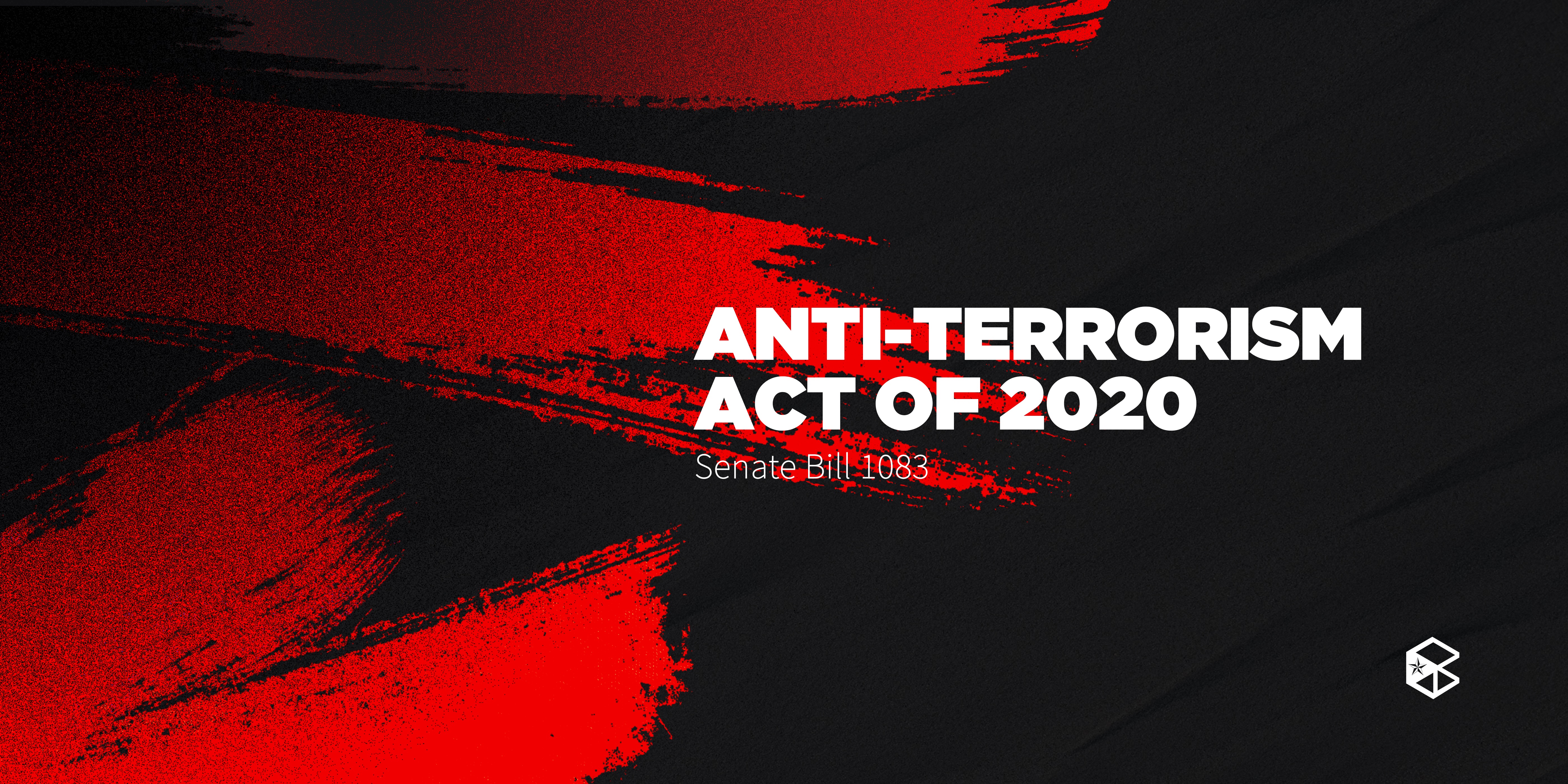In a press release by the Senate of the Philippines 18th Congress, penalties and mandates of the proposed Anti-Terrorism Act of 2020 (Senate Bill 1083) were enumerated, including life imprisonment, warrantless arrest, and orders to the Commission on Human Rights (CHR). The bill was opposed by some lawmakers and senators, describing its description of terrorism to be “vague,” and the bill to be a pavement for “red-tagging” activists.
Senator Panfilo Lacson, the sponsor of the Anti-Terrorism Act of 2020 (Senate Bill 1083), stated the need of the Philippines for “a strong legal structure that deals with terrorism to exact accountability, liability and responsibility,” in order for those involved in terrorist acts will be “prosecuted and penalized accordingly.” Based on the press release of the Senate last February 26, the bill aims to (1) provide a “strong legal backbone” to the Philippines’ response to terrorism, (2) provide law enforcers the “much-needed tools” to protect the public from terrorist threats, and (3) “safeguard the rights of those accused of the crime.”
The bill will repeal Human Security Act of 2007 that aims to secure the country and its people against terrorism. According to Defense Secretary Delfin Lorenzana, this is due to the act being “no longer responsive to the evolving nature of the threats we receive.”
Two House Committee—House Committees on Public Order and Safety and House Committees on National Defense and Security—approved the Senate version of the bill on May 29, 2020. Defense Secretary Lorenzana emphasized that he welcomes the approval of “a proposed bill [that] will strengthen the government’s response against terrorism.”
However, Senators Francis “Kiko” Pangilinan and Risa Hontiveros offered their dissent of the bill due to concerns that it might become a tool that can harm the public rather than protect it.
Senator Pangilinan stated, “The prolonged detention is an impingement of rights and liberty. Why 14 days? If security officials and law enforcers are doing their job, why will it take them long to file a case? Or, is the practice of arrest and detain now, produce or invent evidence later still prevalent, as it was when opposition leader Jovy Salonga was arrested, detained, and charged in 1981? The current law is not perfect, and we, in Congress, should be working continuously to make it work for the people.”
“The amendments, however, are worrisome and could make the Human Security Act an even worse tool for repression instead of an instrument for thwarting terrorists,” he added.
Aside from the concerns on the detention period, Senator Hontiveros expressed that the implementation of the bill might lead to unwanted consequences. She stated, “While all rights permit exceptions, I fear that certain provisions of the bill—specifically those allowing the preliminary proscription of suspected terrorist organizations prior to their being given an opportunity to be heard as well as those lowering the standard for warrantless arrest and detention—go too far and might lead to a number of pernicious consequences.”
Lawmakers, including Bayan Muna Partylist Rep. Carlos Zarate and Quezon City Rep. Kit Belmonte, also stated their concerns for the bill, in which its definition of terrorism was said to be “vague” and can pave the way for “red-tagging” activists that oppose certain acts of the government.
“Terrorism” according to Anti-Terrorism Act of 2020
The bill defined terrorism as acts that “intimidate the general public or a segment thereof, create an atmosphere or spread a message of fear, to provoke or influence by intimidation the government or any of its international organization, or seriously destabilize or destroy the fundamental political, economic, or social structures of the country, or create a public emergency or seriously undermine public safety.”
Penalties and Mandates under the Bill
Based on the press release of the Senate last February 26, the following penalties and mandates are under the Anti-Terrorism Act of 2020 (Senate Bill 1083):
- Life imprisonment for those who are involved and gives assistance to terrorist acts, terrorists, or terrorist organizations
- 12-year imprisonment for those who will threaten to commit terrorism, and voluntarily and knowingly joined a terrorist organization
- Warrantless arrest for suspected persons with 14 days, extendible up to 10 days of detainment period
- 60-day surveillance for suspected terrorists, extendible up to 30 days with judicial authorization from the Court of Appeals (CA)
- 10-year imprisonment for law enforcements or military personnels that have violated the rights of suspected persons
- Certain Regional Trial Courts (RTCs) will be made into Anti-Terror Courts
- Commission on Human Rights (CHR) will be mandated to prioritize the investigation and prosecution of violations against the civil and political rights of suspected and detained persons, and prosecute public officials, accordingly
Moreover, Senator Ronald “Bato” Dela Rosa said that the “enactment of this law will send a brave message to the world that we are in solidarity in the global fight against terrorism,” and thanked Senator Lacson for spearheading the legislative measure.


